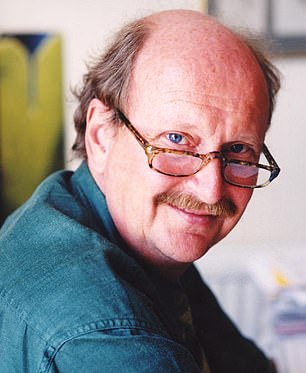New NHS quackery: Hospitals accused of ‘telling fairytales’ to patients as one in ten offer ‘energy healing’, flower remedies and other unproven treatments
The NHS has been accused of embracing ‘dangerous quackery’ by giving reiki energy healing and other unproven treatments to cancer patients.
More than one in ten cancer departments in England are offering alternative therapies despite scientific evidence that they do not work.
Researcher Leslie Rose, a fellow of the Royal Society of Biology, conducted a survey of NHS hospitals to find out who was using reiki, aromatherapy, reflexology and flower remedies with cancer patients.
While no clinic claimed that Reiki or similar therapies could improve a patient’s prognosis, the word “healing” was used frequently, which Rose found confusing.
He accused the health care system of “telling fairy tales” and distracting patients from effective scientifically proven therapies.
Reiki is a Japanese therapy that claims to harness ‘energy’, reduce stress and improve well-being

Complementary therapies such as reiki and reflexology are offered to cancer patients in at least 11 percent of NHS cancer units
He said, ‘Reiki is just a hand gesture. Patients are told that they have imaginary entities inside them called meridians, and patterns on their feet, and that energy is transferred to them that is supposed to control their health.
“It’s all just fiction, and it distracts them from focusing on things that might make them feel better.
‘The NHS hospitals said they weren’t trying to cure cancer with these treatments, but that’s the least they should say.
“They may say it’s okay to distract patients from their illness by telling them fairy tales, but I don’t think it is because it means you’re lying to them.”
Reiki practitioners claim to reduce stress and promote well-being by channeling an individual’s invisible life force and balancing internal energy meridians.
Mr Rose said no NHS patient could have given informed consent to receive reiki or similar treatments because they could not have been given accurate information.
“If they were told this might make them feel better, that’s misleading,” he said.
‘You could argue that placebo effects are relevant, but for placebo effects to work you have to lie to the patient.
‘Research has repeatedly shown that these treatments do not work and that they do not even make people feel better.
‘If there is one thing, it is the interaction with another. You might as well just have a nice conversation and drink a cup of tea.
‘Instead the NHS pays people with ‘qualifications’ to carry out this kind of nonsense.
‘It undermines the NHS’s efforts to establish evidence-based clinical practice. In the interests of the patients, this must be stopped.’
For his research, published in the journal medRxiv, Rose searched NHS websites for mentions of alternative therapies, including reiki, aromatherapy, EFT (emotional freedom technique), reflexology, chakra balancing, therapeutic touch, Indian head massage and Bach flower remedies.
He found 23 trusts that appeared to offer these treatments to cancer patients, out of 169 trusts in England that provide cancer care.
He made Freedom of Information Act requests to each of these trusts. Of these, 19 (11 per cent) confirmed that they were currently offering pseudoscientific practices in oncology and palliative care.
Others said they had since stopped offering Reiki, while others claimed they did not have the necessary data or could not respond.
Mr Rose added that the number of trusts offering alternative therapies could be much higher. For example, there may be some that do not advertise their services publicly online.
“My suspicion is there’s a lot more of this stuff going on than I could discover,” he said. ‘My studies focused on this specific specialty. But I believe quackery is absolutely rife in the NHS.”
Professor Edzard Ernst, a world-renowned expert in alternative medicine, said that offering reiki to cancer patients is dangerous.

Professor Edzard Ernst believes offering unproven alternative remedies to NHS patients is putting lives at risk
“People may think that if the NHS offers it there must be some evidence behind it, when there isn’t,” he said.
‘The NHS is misleading patients. The evidence for these treatments is negative or non-existent. Trusts may think that these alternative treatments do no harm, but they are mistaken. They cause a lot of damage.
‘People who are offered this stuff by the NHS can recommend it to others with life-threatening conditions such as cancer.
‘People can die from it if they think, ‘Reiki can cure my cancer, so I don’t have to do this nasty chemotherapy.’
‘Either we take evidence-based medicine seriously or we don’t. If we don’t do it, then everything is allowed and people will die.
“I have been fighting misinformation about alternative medicine at all levels for the past thirty years, so this is close to my heart.”
